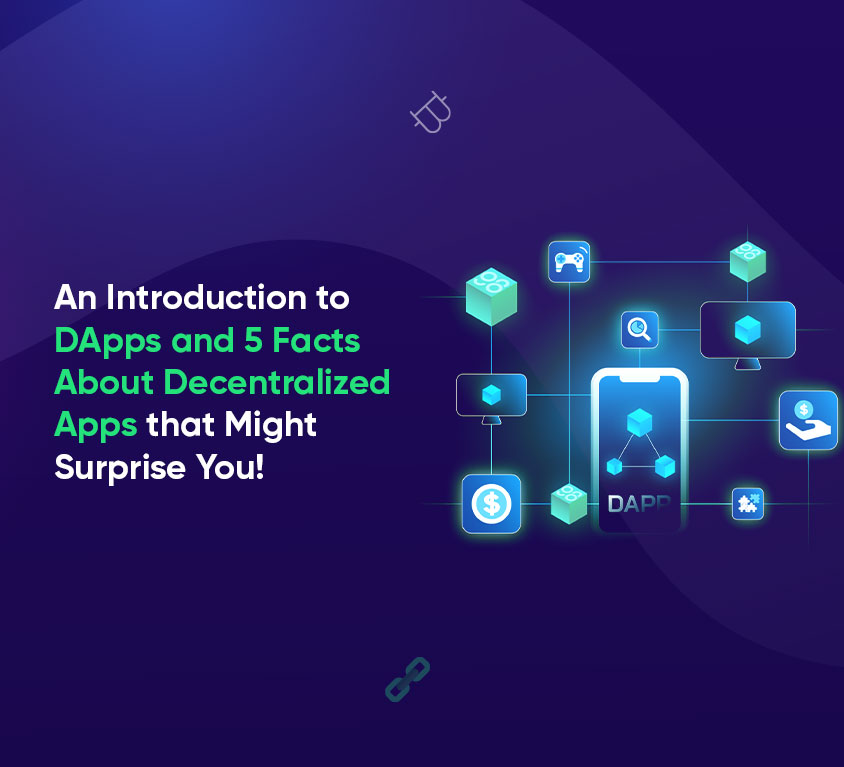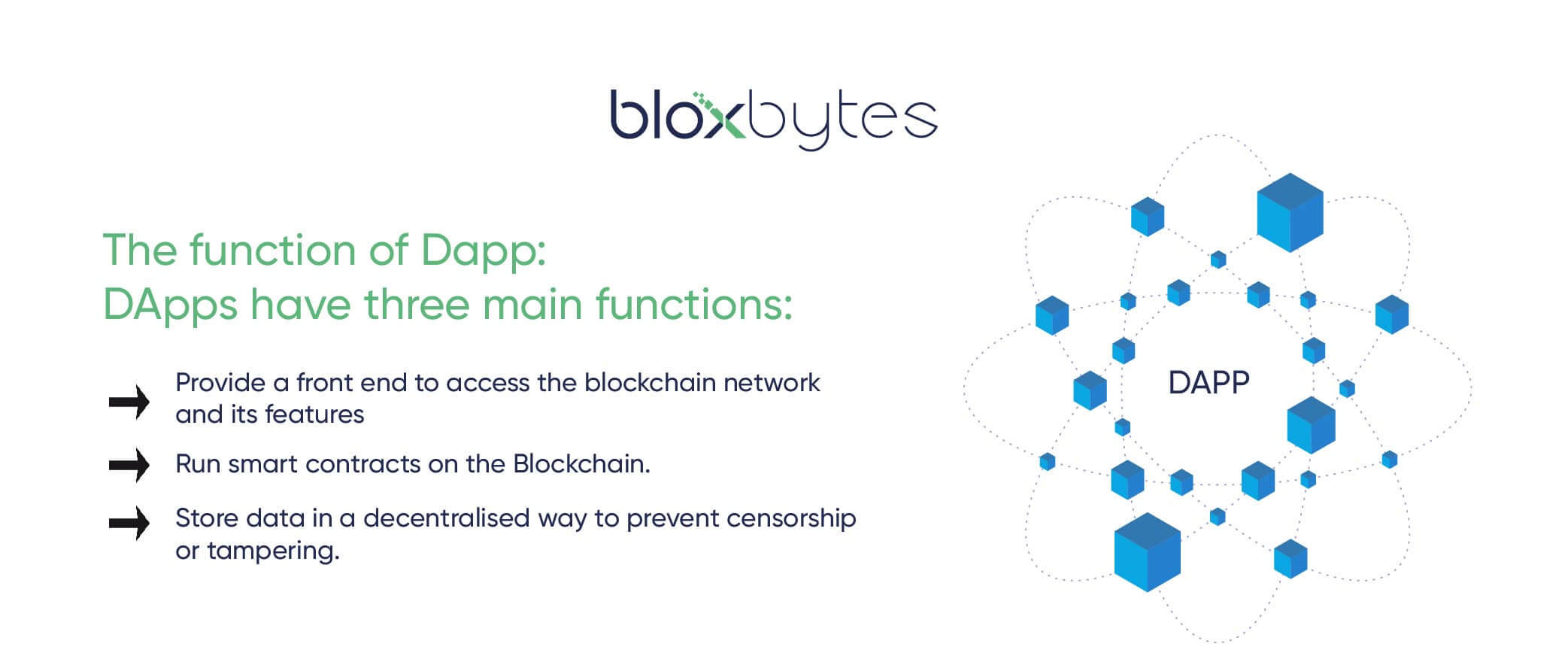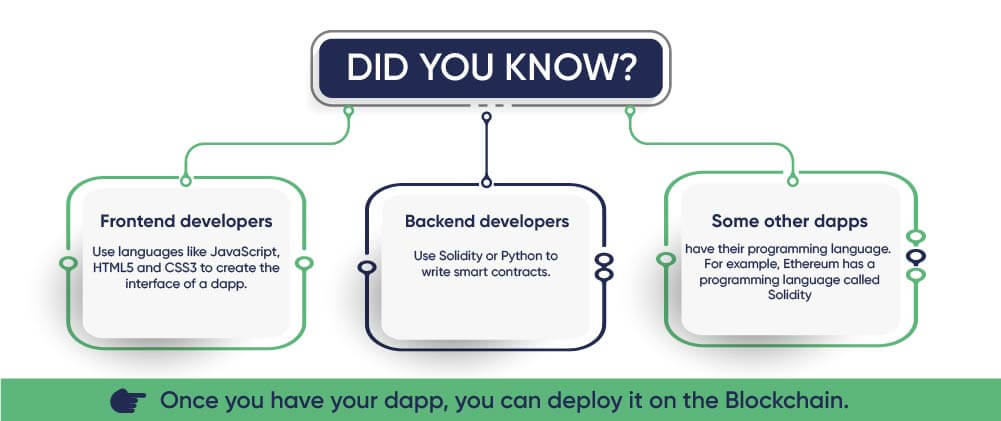
Introduction
An Introduction to DApps and 5 Facts About Decentralized Apps that Might Surprise You!
Decentralization is the future of technology. It’s inevitable. Blockchain technology is making way for the end by removing the intermediaries from a chunk of traditional services while redefining how these obsolete services work. Decentralization is a concept of sharing power among all its users to ensure a safe, secure, censorship-resistant, and open-access environment. Blockchain is simply the fuel that powers decentralization. This blog will cover what Dapps are and five facts about Decentralised apps that can surprise you!What is dApps?
Decentralized applications, or dApps, are a new way of building software. This next generation of applications is more secure and transparent since they run on a peer-to-peer network. Dapps are apps that do not have a single point of failure and cannot be hacked, destroyed, or censored by a single entity. As a result, Dapps allow users to create value without having to trust each other or any third parties. The question you might have is, what difference does it make using Dapp or traditional ones? Let’s find out!
The question you might have is, what difference does it make using Dapp or traditional ones? Let’s find out!
Traditional Apps vs Decentralised Apps
When a hacker takes control of the central server, traditional apps can be compromised, losing all data and user details. Losing data can cause significant problems and disrupt your business services during downtime, causing a loss of productivity among users.Traditional Apps:
One primary concern of the centralized network is the risk of data breaches and malicious attacks. As a result, all the hosted applications are in danger, which may lead to losing valuable and sensitive information like customers’ private data.
Decentralized Apps:
The decentralized network employs blockchain technology to handle all the transactions safely, storing files on multiple computers. Thus, hackers cannot crack the entire system or steal information. As a result, decentralized applications are changing the game regarding security. A blockchain for decentralized application development creates a new paradigm for data protection as you become the master of your data. You can eliminate seedy, untrustworthy data and broken websites by utilizing decentralized storage! Proof-of-Stake consensus, dual security factors, and proactive resistance to viruses and malware are the best solutions to your data security challenges.
Traditional Apps vs Decentralized Apps
How are Decentralized apps classified:
Finance-Based DApps:
Blockchain applications (Dapps) offer users different ways to handle financial resources. In these kinds of applications, no central authority manages the money. Instead, network consensuses and individual users control their currency. These blockchain apps are different from traditional applications because they work on a decentralized network.
Semi-Financial DApp:
These applications operate outside the blockchain and involve currency or information exchanges, for instance, ICOs and insurance apps. Developers can quickly develop these apps since they employ ERC-20 Token Standard.
Full-functioning Dapps: Applications with all the features of a traditional application are entirely on the blockchain and are decentralized. They run on different protocols and handle everything from payments to smart contracts. These apps are not financial at all levels, including digital voting.
Full-functioning Dapps:
Applications with all the features of a traditional application are entirely on the blockchain and are decentralized. They run on different protocols and handle everything from payments to smart contracts. These apps are not financial at all levels, including digital voting.
5 surprising facts about decentralized apps:
1. Blockchain Dapps give direct access
Blockchain technology has made it possible for businesses, governments, and financial institutions to eliminate the role of go-betweens in transactions. DApps give sellers and buyers direct access to one another without needing a third party. This cuts costs and time spent on services that would otherwise require an intermediary.
3. Blockchain Dapps give independence
Blockchain-based decentralized applications don’t have a controlling agent. As a result, blockchain apps are more transparent than traditional apps since all transactions are visible to everyone.
3. Blockchain Dapps give higher security
Decentralized apps run over a distributed network of computers, unlike conventional apps. In addition, DApps use complex encryption algorithms. This way, no one can manipulate or hack data. For example, Hacker needs access to all computers where the application runs, which is nearly impossible.
4. Blockchain Dapps are never down
A centralized server is frequently down whenever there is a power outage or a server crash. Decentralized apps are available 24/7. In addition, higher-capacity blockchain networks speed up DApps. As a result, DApps perform better. A Dapp’s reliability, security, and responsiveness improve and depend on a broader set of devices. Surprisingly, due to the data copies across multiple devices, DApp can function uptime.
5. Dapps can spread your business across the globe
Using DApps can make it easier for franchises to set up in different countries and regions. Decentralized applications host data on separate servers and host their peer communities. As a result, they are safer from hackers than traditional apps. Finally, let’s look at the different features of DApps based on their functions.

Some exciting features of Decentralized apps:
1. Dapps are open to all
DApps are open-source and distributed. As a result, anyone can access, modify, or create new applications using the same technology. Users can also participate in the development of DApps by contributing code or offering feedback on new features. The second advantage of DApps is that they are made up entirely of decentralized data, and any network peer can view the transaction history in a blockchain application.
2. Dapps uses an agreement system
Blockchain-based decentralized apps use consensus mechanisms to reach an agreement among all participants. The process implementation is usually through a proof-of-work (PoW) protocol or a proof-of-stake (PoS) protocol. Instead of depending on a centralized authority, blockchain networks connect users directly. Since all miners must approve a block of transactions, they will not accept transactions that violate their rules or do not comply with their expectations. Furthermore, adding any transaction to the blockchain database requires approval from more than half of the community. Consequently, it is challenging to change old entries in a way that others would not detect, making them immutable (unchanging).